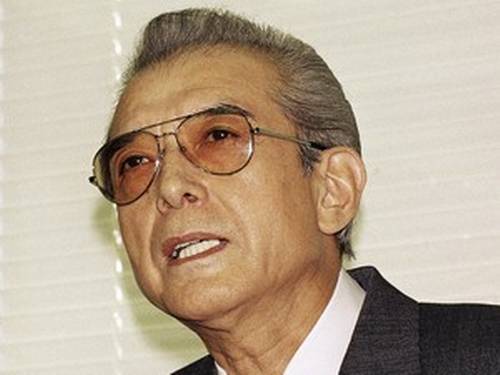RIP Hiroshi Yamauchi

Wealth did not make Yamauchi’s childhood easy. He was the child of a broken home. He came of age working in a military factory in a war torn nation. When he became president of Nintendo, at 21, it was in a poisoned atmosphere of his grandfather dying, feuding with family members, and stepping into an organization that didn’t trust the fiery young man.
Shiny, blinky electronics giant Nintendo has roots in the Meiji era of Japan. It started in the 1880s making hanafuda—playing cards used by the yakuza in underworld gambling dens. When Yamauchi took the reigns, decades later, hanafuda was still the main business. In the 50s, Yamauchi introduced plastic coated cards, a twist that led to market domination. Yamauchi signed a licensing deal with Disney and sold cards to a huge untapped market of kids (who, needless to say, typically didn’t set foot into those smoky underworld gambling dens).
They sought growth in different markets. They made instant rice. They invested in a love hotel. They built a vacuum. All failures. What sold was the Ultra Hand, a robot grip at the end of an accordion like arm. Toys worked for them. They tweaked the display of the increasingly common electronic calculator to make electronic games. Game & Watch took off. Video games worked for them. That is how Nintendo, and Hiroshi Yamauchi, entered my life on the drizzly playgrounds of early 80s London: as a tweaked calculator in an orange plastic clamshell where a janky image of a gorilla jerked between two different body poses.
Decades before smartphones and social networking, Video games had been the hot tech sector. However by 1985 the
industry had crashed. Conventional wisdom declared video games a fad—just like recent history examples the hula hoop and pet rock. The toy industry told Nintendo that the video game fad had passed, that the princess was in another castle. In the face of conventional wisdom, Nintendo bet the company to get the Nintendo Entertainment System
into a single region of a single retail chain. Anybody who has heard of Super Mario Bros. and everyone who has played Zelda knows the ending to this story. Nintendo spent the following decades jumping from success to success, becoming
more profitable than Goldman Sachs at one point.
So what was it about Hiroshi Yamauchi that made this possible? What made this guy a visionary? Was it that the Famicom released in 1983 had a
modem port, foreseeing the future of digital distribution and network gaming? No. Something much more fundamental.
Yamauchi understood that you need to make awesome without the overhead. When his plastic coated cards took off, he realized that a small change could make a huge difference. The Game & Watches were commodity calculators with a different LCD. The black and white, blocky pixels of the Gameboy played Tetris. Nobody knew what played on fancy color screens and networking equipped Atari Lynx and Sega Game Gear. Everybody is familiar with the Wii. While a snarky game press complained that it was merely two gamecubes duct-taped together, Nintendo couldn’t produce enough to meet demand for three years. You can use the fancy Japanese term 枯れた技術の水平思考 if you want to sound as wise as Miyagi-san revealing deep truths to Daniel.
Yamauchi understood that you made great video games by empowering creators. The nerd canon has revered places for the likes of Gunpei Yokoi, Shigeru Miyamoto, and Satoshi Tajiri. Yokoi was plucked off of the assembly line to make the Ultra Hand. Miyamoto was asked to make what became Donkey Kong, and was enabled to make sequels. That culture of enabling creators supported Tajiri for six years making Pokemon. At the dawn of video games Atari thought of the industry as gorgeous high-tech boxes to make your TV blink, the games themselves being shovelware. 30 years after ET the game was cranked out in time for Christmas, we know which philosophy has stood the test of time.
Yamauchi understood that failure is as natural a part of the creative process as getting up in the morning. They found success with toys only after they built a portfolio of failures from love hotels to instant rice. If you made a list of Nintendo’s world beating successes, from Mario to the DS, it would be long. However if you made a list of Nintendo’s huge public failures, from the virtual boy to even the Wii U, it would also be long. Few large companies are as fearless as Nintendo, and is a direct result of Yamauchi’s grasping search for success outside of playing cards.
Yamauchi was a great man. The world is a better place thanks to him. He will be missed.

